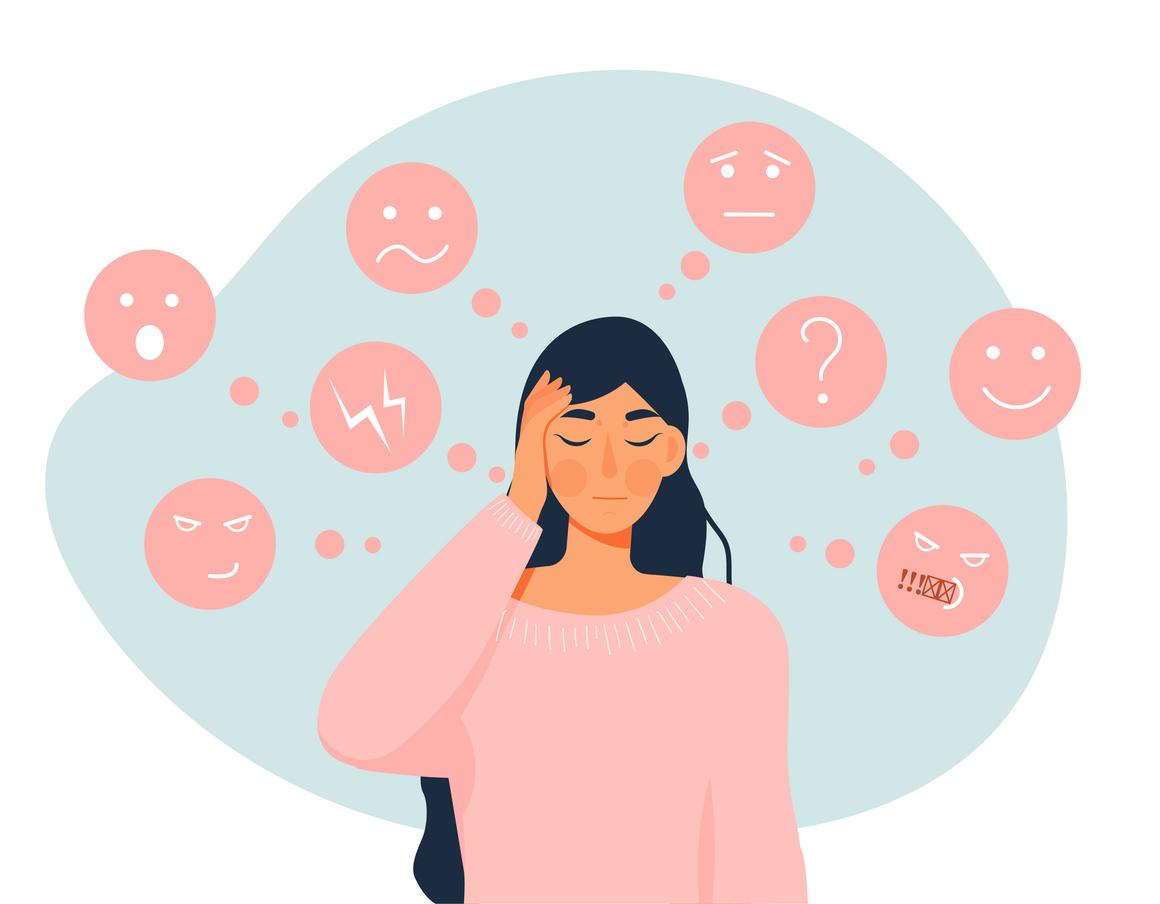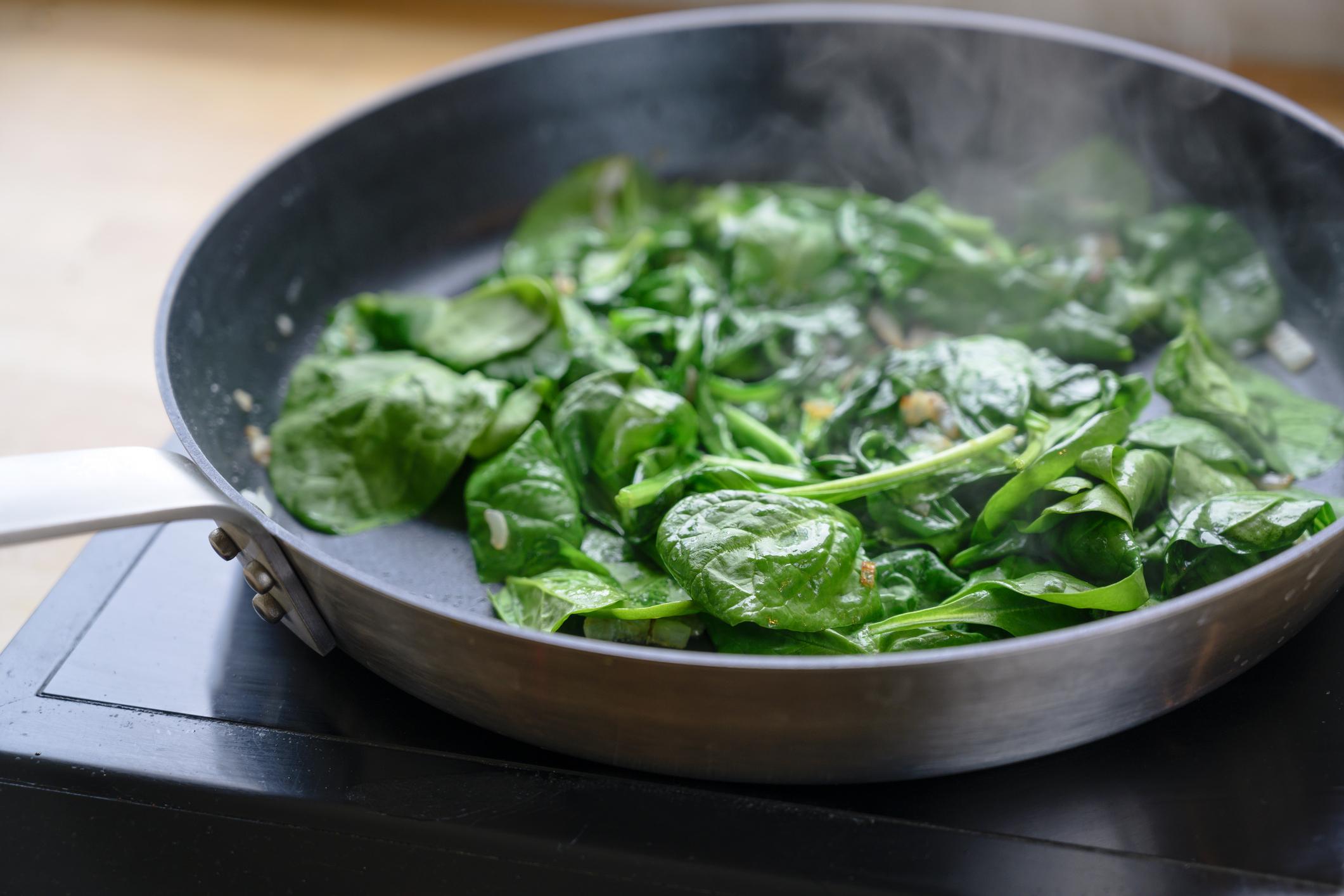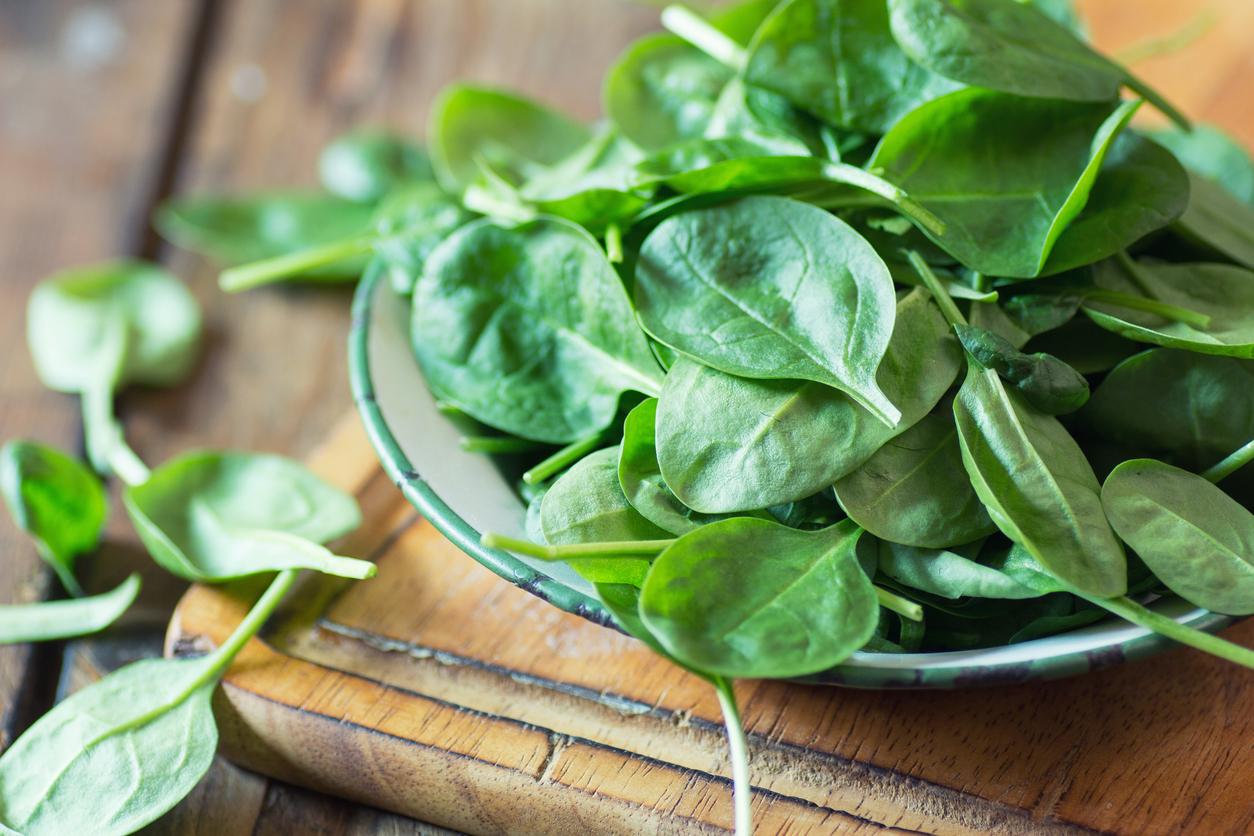Long – and wrongly – a symbol of strength, spinach, of which France is the leading European producer, is therefore not as rich in iron as was long believed… But it knows how to make itself useful by many other talents…
Our brain functions thank him
Some of its antioxidants, more particularly lutein and zeaxanthin, two pigments from the carotenoid family, have protective properties for the eye and vision. They reduce, according to a study conducted by Inserm, the risk of cataracts and age-related macular degeneration (AMD) by helping, when they are very concentrated there, to preserve the macula, part of the retina attacked by the disease. Even better, zeaxanthin would preserve the brain from aging, probably by protecting nerve cells from free radicals. Trials on more than 1,300 subjects aged 60 to 71 have shown its interest in the fight against cognitive decline, including memory, concentration and logic functions. Even better, if it is good for the brain, spinach is also good for morale thanks to its richness in group B vitamins, especially in vitamin B9 (or folic acid) which contributes to the production of serotonin and dopamine, therefore to the balance of mood but also of emotions and sleep. Lacking it, according to some researchers, is to increase the risk of depression or even depression up to 55%. But also aggressiveness: many mood swings and moments of irritability could indeed be due to insufficient consumption of vitamin B9, or to a lack of absorption linked to a gastrointestinal pathology (celiac disease or Crohn’s).
women’s friend
In addition, this malignant leaf contains vitamin K1 (phylloquinone), a version of vitamin K whose interest for women has been proven, particularly after the menopause : this K1 is indeed involved in bone renewal and helps maintain bone density, reducing the risk of fracture due toosteoporosis. This effect, measured by scientific studies, is so clear that vitamin K supplementation is recommended for postmenopausal women. Advantage, this vitamin, all the more present as the leaves are very green, does not disappear with cooking (but it is less present in frozen foods). And if its effect on coagulation has been known for a long time, its virtues on the bone system but also on the cardiovascular health (particularly on atherosclerosis) have been highlighted more recently.
Real protection against cancer
K and B9: with these two super vitamins, its fibers and its vitamin C, spinach has everything it takes to age well! A Spanish study, dated 2014, even demonstrated that vitamin K intake was associated with a decrease in mortality from all causes including cancer! Individuals consuming large amounts of folate of natural origin (and not of food supplements) would present fewer cancers, in particular of the colon (one of the most common), pancreasof the’stomachoropharynx andesophagus. Be careful, it would seem that, conversely, significant supplementation (more than 200 micrograms/day) based on supplements has a perverse effect. We will therefore be satisfied with the natural version, that of spinach!
Its health benefits
• Keeps eye disease away. Rich in lutein and zeaxanthin 2 pigments that protect against cataract and some AMD.
• He protects the brain of aging and declining cognitive functions.
• He improves mood thanks to vitamin B9, which is involved in the production of neurotransmitters such as serotonin.
• He warns osteoporosis fractures in women
• It would protect digestive cancers thanks to vitamin B9 in natural form. Moreover, spinach consumers reduce their risk of mortality!
Buy it organic: an imperative !
Like salad and other vegetables, it is better to choose your spinach leaves in an organic store, because they are eaten “as is”, without peeling. However, the skin of fruits and vegetables serves as a sort of bulwark against pesticides, which concentrate there without sometimes being able to penetrate the flesh. For him, therefore, it is impossible to escape it. Polluted, spinach? Yes, like so many others, since according to a study by the USDA (United States Department of Agriculture), it can contain up to 58 different pesticide residues… However, many are used after picking (for the transport and conservation), and buying local can be an alternative that limits the risks. In all cases, care should be taken to thoroughly clean the leaves with plenty of water (without letting them soak because the vitamin C is soluble in water).
Read also:
Spinach high in vitamins
Spinach, strong in antioxidants!
The health benefits of spinach


















